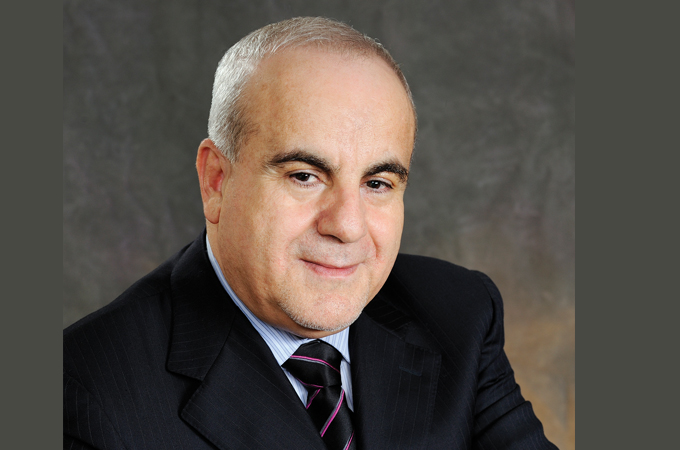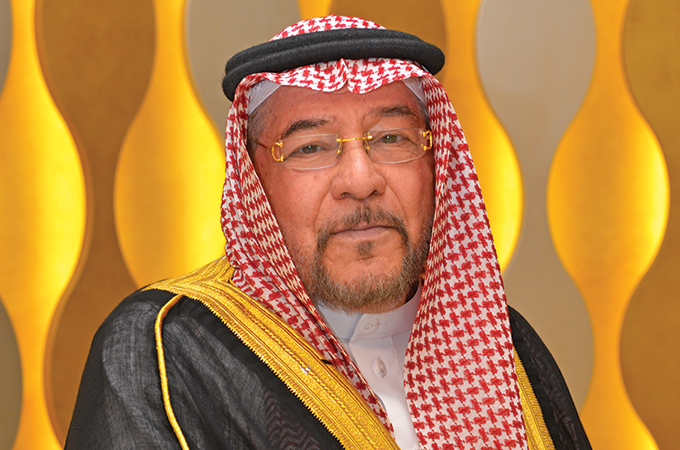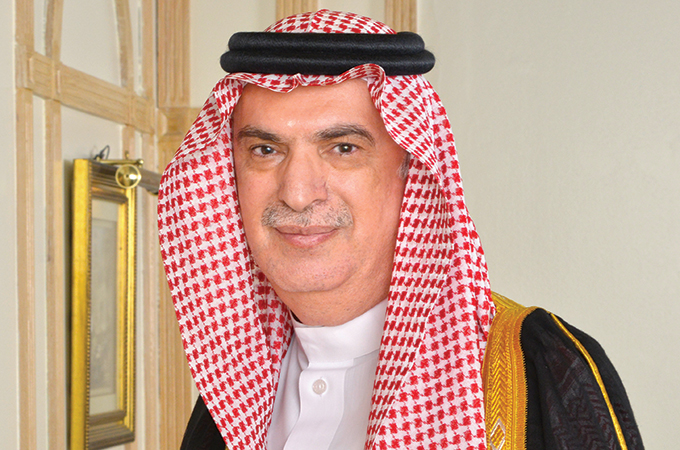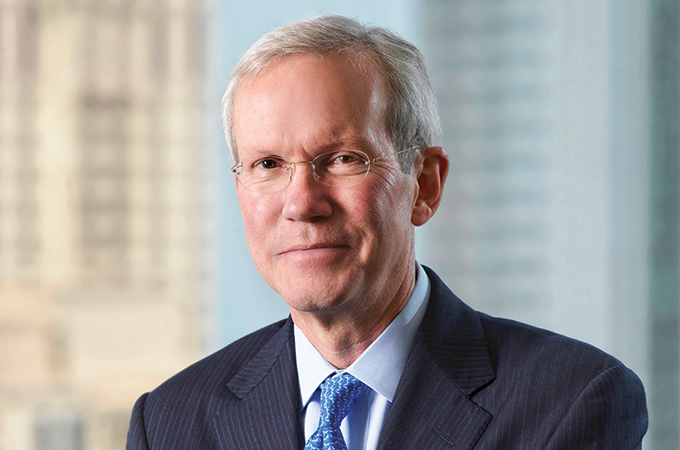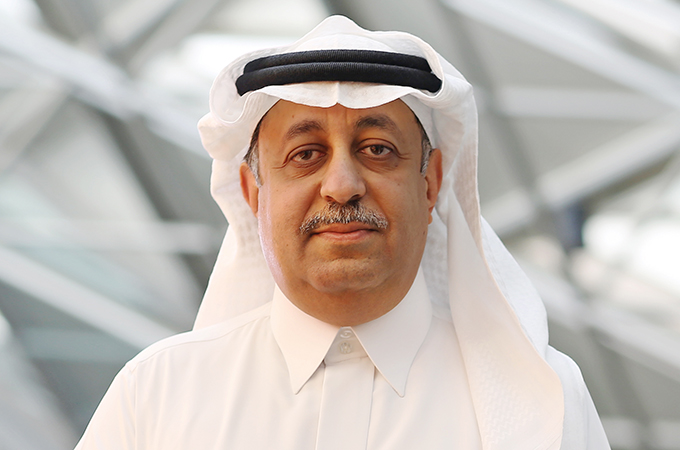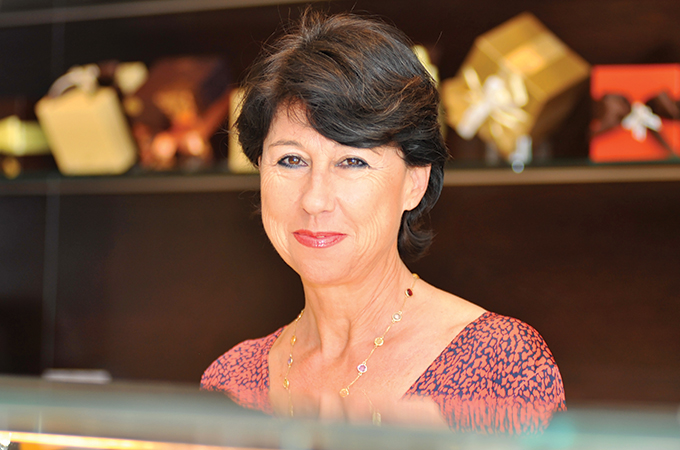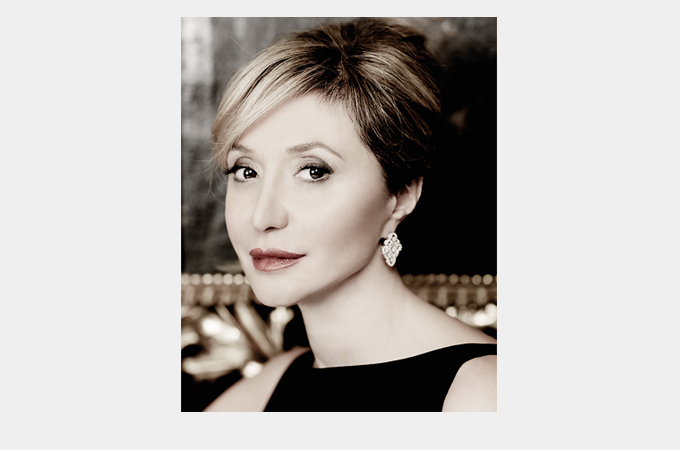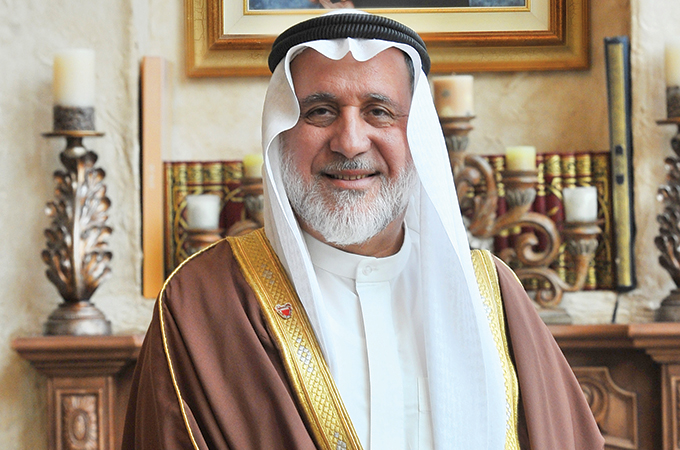Autumn 2018
Ghazi Abu Nahl, a former refugee and an insurance sector pioneer in the Gulf, has a deeply engaging tale to tell. With the Nest Investments he founded managing more than $5 billion in assets, he surely must be heard
The story of Ghazi Abu Nahl has all the trappings of rags-to-riches tales – the early trials and tribulations, the determination to succeed and finally making it big on the world stage.
Abu Nahl, 72, is the Founder and Chairman of Nest Investments, a diversified group that operates in more than 23 countries. Through thick and thin, his mantra has always been compliance with regulation, excelling in what he does and trust in people. The nest he built as a young man is today a global empire with $5 billion assets.
The story of the future insurance magnate began when he and his family were thrown out of their home in the small Palestinian town of Barbara in 1948, when he was barely two years old, by the occupying Israeli forces and the family became refugees in Gaza.
“Life wasn’t easy as a boy and a young man,” he admits now. “With seven brothers and five sisters to feed (I was the eldest at 11), we all quickly learnt that making money was a matter of life or death. I worked hard throughout my childhood and did well in my studies and was able to go to university in Cairo, at the age of 17. However, my parents struggled to pay the fees and I returned home after 40 days due to the guilt I was feeling,” reminisces Abu Nahl.
For him, the responsibilities as the eldest son were huge. Though he is an insurance sector mogul now, insurance wasn’t his dream, it just happened that way, says Abu Nahl.
“I wanted to help my parents support my siblings. I found work in Qatar at an insurance agency called Arab Commercial Enterprises. They trained me on the job and the business grew well and expanded into the other Gulf states. That job taught me so much of what I needed to know about insurance at that time. I worked at the company for 20 years and was very happy there, especially as it allowed me to help share the financial burden of my family,” continues Abu Nahl.
It was not until all his siblings had finished their education, that he was able to take any risk. And when the burden eased, he knew he could branch out on his own and set up his first business – Qatar General Insurance & Reinsurance Company in 1979.
Charting the journey of growth, Abu Nahl says: “In 1986, my wife and I moved our family to Perth, Australia, in search of a new challenge. However, I was travelling frequently to the Middle East and in due course acquired Trust International Insurance and Reinsurance Company (Trust Re) in Bahrain. To manage the various businesses, I set up Nest Investments, our family holding firm. It was very important to me to consolidate all the work my family had done over the years in one place.
“We’ve since continued to grow, acquire new businesses and expand into new territories. Today, we manage more than $5 billion in assets and have an annual turnover of more than $700 million across insurance, banking and property. There have been many challenges, but overall, I think we have done well,” says a satisfied Abu Nahl.
He recounts that, in the beginning, the company faced many challenges, but his family and staff stood by him. “Insurance itself was not a popular concept in the Gulf at the time: it was tended to be rejected in the Islamic community. As a result, only British expatriates in the Middle East seemed to flourish in the industry, and there were only a handful of insurers working in Arabic and serving local people.
“We argued that insurance would help the local economy and would provide for families in the hard times as well as the good – our ambition was to build trust in our local community, which we succeeded in doing over time,” continues Abu Nahl.
The company was able to take advantage of economic growth and demographic and cultural change in attitudes towards insurance in the Gulf in the 80s and 90s. Improved regulation in the region helped make it a more appealing place to grow insurance and financial service businesses, he adds.
“We’ve been able to grow the business over the years because we’ve always been incredibly diligent. We work extremely hard to ensure that our insurance contracts provide value for our clients and customers and comply with local regulatory requirements and with the cultural context in which we operate. This is what sets us apart,” asserts Abu Nahl.
Though Nest’s geographical footprint is largely concentrated in the Mena region, it also has business interests in the US, UK, Spain, Cyprus, Malaysia, India, China and Australia.
“We do plan to expand but will always undertake careful analysis of risk and the local operating environment before we do. This includes scrutiny of the political, economic, technology, environment and legal factors involved. If there is no business case to move into a region, we will not do so. Often global businesses forget their founding principles or fail to properly implement them across business cultures, particularly if they operate in difficult markets. As we expand we will not forget the core values that lie at the heart of the business, namely value, diversity and ethics,” Abu Nahl reiterates.
Under the Nest umbrella, the business has been organised across seven verticals, including: reinsurance, direct insurance, broking, banking, manufacturing, World Trade Center-licensed operations and investment and real estate. This structure has governed how the business has grown over time. Over the last decade the group has invested heavily in real estate across its countries of operation.
One of its more notable and unique developments is Bab Ezzouar in Algeria. This is a landmark development close to the international airport and is close to completion. When finished, it will comprise a luxury five-star hotel and courtyard, a shopping centre, offices and executive apartments. It will be one of the most progressive developments in Algeria and will bring tremendous revenue and opportunity to both the country, and the region.
KEY FACTORS FOR SUCCESS
For Abu Nahl and his team, following the rules and excelling in what they do were two important principles to adhere to. “From a very early stage in the business, we focused on regulatory compliance and sticking to our principle – to be the best in everything we do. This formed our values, behaviours and our business strategy. We wanted to create the best value for our clients and partners, through diverse commercial activities within an ethical framework.”
“The growth of the firm has been shaped by our focus on providing the best value for our people – shareholders, investors, staff and partners, on maintaining the diversity of our commercial activity and safeguarding steadfast ethical principles. This will remain the case regardless of how large the business becomes and regardless of its status,” he stresses.
Nest remains a family firm despite growing exponentially over the years. On this, Abu Nahl says: “Status is not important. I’m simply looking to build a successful business so that all the Nest family, both my relations and my staff, can be secure. We have been able to grow because our values and trust have always been the top priority.”
On the areas the company now focuses, Abu Nahl identifies them as: “Now our emphasis is on ensuring our products keep up with the speed of technological change and adapting to evolving customer behaviours to ensure we stay relevant. That isn’t always easy when you have been in the market for as long as we have.”
Despite staying a family firm, Nest has successfully recruited and integrated external expertise into the company. Speaking on this, Abu Nahl says: “This is something that I am very proud of. Nest has certainly got stronger since non-family members have filled leadership roles. We all understood that the sheer size of the business meant that it required external experts to continue to grow.
“I am not concerned about ‘keeping things in the family’. We are focused on the work for our clients and I’m confident that our founding principles will remain at the core of the business long after I have gone,” he says confidently.
In a major move, Nest has recently gone through the process of setting up a family office. The Nest founder explains what it means for the company: “We set out to separate the business from the Abu Nahl family in all matters except shareholding as investors. It has been a long and often difficult process, but we know it will serve the company, its employees and the family best in the long run. We are determined to make sure that the early days of the family office are guided and nurtured by professionals, blending insider experience with fresh new insights.
“It is our belief that creating a family office will give Nest a new lease of life, whilst securing our longevity. The family office will have an oversight role as well as dealing with philanthropy, family education and succession as well as risk management,” he adds.
Abu Nahl is also chairman Emiterus of the World Trade Centers Association (WTCA), a truly global membership network dedicated to the promotion of international trade and investment with more than 300 members in more than 90 countries. “So, I do understand the importance of geographical diversity of business interests and am an advocate for international trade,” he says.
So what are some of the unique qualities of Nest? Abu Nahl unhesitatingly says: “It comes back to our vision statement – ‘to be the best in everything we do’. To us, it means not only to be the best, but to be seen to be the best internally and externally. We wish to create best value for our people – associates, customers, staff and business partners, through diverse commercial activities within an ethical framework.”
To be the best is not just a mission statement; Nest has devised a seven-point value framework that instructs its ethical principles. “These are compliance – we will always operate within the law; fairness – we will treat every person or entity with fairness; creativity; collaboration; empowerment; excellence; and association – we will only associate with individuals and organisations that share our value system,” says Abu Nahl.
And trust is central to everything that Abu Nahl does. It extends down into the business through management and staff, and by the implementation of its values’ framework.
“Everything that Nest does comes down to trust. In fact, our first business was named ‘Trust’ because that is exactly what we have always tried to build – a group of people, be it family, employees or clients - that can rely on each other.”
Abu Nahl is a champion of professionalising family businesses for long-term growth. Elaborating on this, he says: “Most businesses are brought to life by one or two people and, if successful, they initially thrive as a family business. Successful growth eventually leads to crossroads where the owner or managers, who are typically also the founder and their family, realise they can no longer sustain growth through their own personality and business acumen. They must ‘professionalise’.
“This can be a dirty word to some entrepreneurs, who feel it is precisely by disrupting the market and questioning conventional wisdom that they have been successful. However, once a company reaches a certain size, it needs structures and processes in place to make it run smoothly and compete effectively in the open market,” he continues.
“Bottlenecks created by a founder’s unwillingness to delegate and lack of proper decision-making processes are all too common. Greater still are the challenges of succession. It is a fact of life that most family firms do not survive past three generations. Too often, the founder’s grandchildren or great-grandchildren have no appetite for the family business, or simply take for granted that it will always be there, providing them with an income. We don’t want this for Nest, and so we’re professionalising by creating our family office,” he says.
Abu Nahl is a pioneer in the Mena insurance sector and his insights on the challenges facing the sector are important. “The non-life insurance sector in the Middle East has seen double-digit growth since the millennium. This is expected to continue as the cultural perception and economic necessity of risk mitigation through insurance increases. The sector must ensure that it can keep up with growth through product development and range, technology innovation and liquidity to manage an increased portfolio of clients,” he says.
“Secondly, as the sector grows so will the regulatory burden, particularly for businesses operating across jurisdictions. Businesses must ensure they remain compliant with an increasingly complex regulatory landscape.”
Technological innovation is one way in which the sector can respond to growth. “I believe Nest is well prepared to meet the new set of customer expectations that is emerging through innovative, customer-friendly products. We have embarked on investing close to $30 million in upgrading our insurance and reinsurance operating software, as well as ensuring that we make the best use of cloud platforms, business intelligence software and cyber security provisions,” he adds.
SOCIAL RESPONSIBILITY
Abu Nahl is also passionate about social responsibility and feels he is lucky enough to have the wealth to support projects that he believes in. “As a former refugee, issues related to education, the rule of law and principles of human rights are important to me. For example, I was invited to donate to the Bonavero Institute of Human Rights, part of the Oxford University Faculty of Law and gratefully accepted. The institute provides a facility for education, research and scholarship in human rights law and was opened in 2017 by the late Kofi Annan.
“My wife Hind and I were inducted into the Oxford University Chancellor’s Court of Benefactors in November 2017 in recognition of our contribution – it was a very special day for us both,” he says proudly.
– By Sree Bhat



